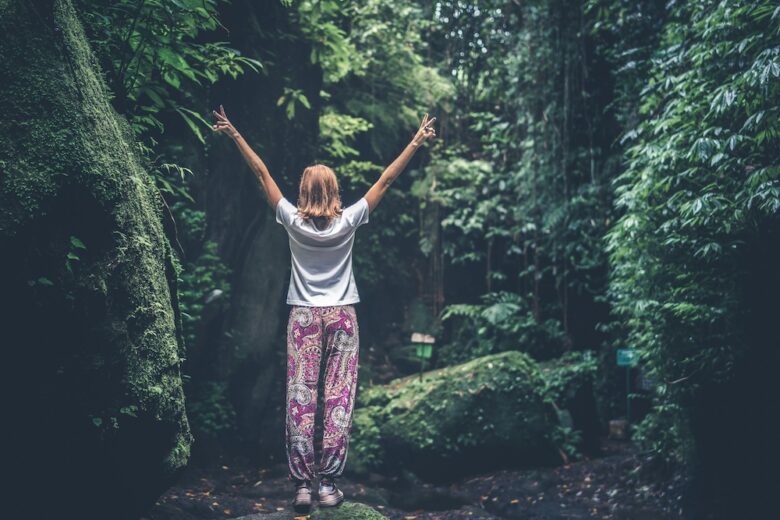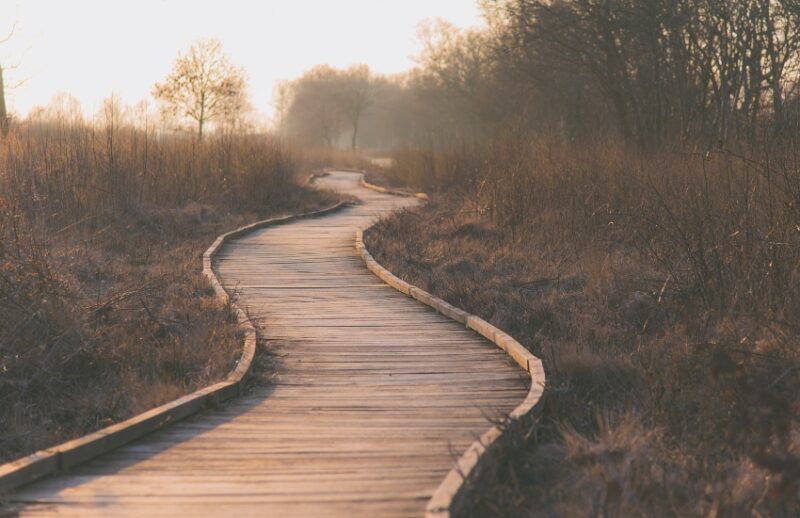I didn’t plan it as an experiment at first. It started as an impulse, the kind that comes with the first warm breeze of spring when the city seems too heavy, too insulated, too full of walls—both concrete and imagined. I left my apartment with nothing but a backpack, a notebook, and a vague idea that I might not step back inside until nightfall. No phone, no laptop, no social obligations, just me and the open air.
The morning was cool, the kind that makes your skin tingle and your chest expand with each deep inhale. I walked without purpose at first, letting my feet guide me down streets I thought I knew. But soon, familiarity became irrelevant. The city smelled different outdoors; the air was not filtered by windows or ventilation but layered with scents of damp earth, freshly cut grass, and the faint smoke of someone’s breakfast somewhere behind a corner. Each inhalation felt like a small reset button, like the world had pressed pause for just me.
By mid-morning, I found myself at a small urban park I had never explored fully. The trees weren’t towering or exotic, but their branches framed the sky in a way that made it feel like I had stepped into a different world. I sat on the grass and closed my eyes, listening. There were birds, of course, but also the hum of distant traffic, the rhythmic clatter of a jogger’s sneakers against pavement, a dog barking somewhere far off. Alone, yet intimately connected to everything around me, I felt a calm I hadn’t realized I had been missing.
Spending a day outdoors forces an attention to small details that are easily ignored when life is filtered through a screen. I noticed the way sunlight caught on a spider’s web, refracting like tiny prisms, or how a breeze would bend the reeds at the edge of a pond in a gentle choreography. I watched an elderly man feed pigeons, not hurriedly but with a kind of deliberate slowness, and I understood that patience is learned through observation as much as through instruction. Each movement, no matter how ordinary, seemed infused with intention once I was fully outside.
As noon approached, hunger reminded me that my body was tethered to physical needs, no matter how elevated my mind felt in the open air. I ate slowly, appreciating not just the flavor but the texture, the temperature, and the sounds of the world around me—the crunch of leaves underfoot, the distant hum of conversation. Food tasted different outdoors; maybe it’s the absence of distraction, or the heightened awareness of every bite, or the subtle interplay of sun and shade on your skin while chewing. Every meal became a small meditation, a reminder that nourishment isn’t only about calories but about engagement with the moment.
I wandered into a riverfront path in the afternoon, where the water moved in patterns I could watch forever if I let myself. I found a bench and just watched, letting the ripples carry my thoughts away. The river, unhurried and untamed, mirrored the pace I had tried to adopt. It was mesmerizing how little control we actually have over the elements, and yet how calming it is to simply witness them. I scribbled in my notebook, not trying to craft sentences but to capture fragments: the smell of wet stone, the sound of ducks paddling lazily, the feeling of the sun warming my shoulders. Writing became a way to anchor fleeting impressions before they slipped into oblivion.
By late afternoon, clouds rolled in, and the first drops of rain began to fall—not a storm, just a light drizzle. Most people would have rushed for cover, but I stayed. There’s a strange, almost spiritual clarity in being caught in the rain without shelter. Your hair clings to your face, your clothes grow heavy, and your senses sharpen. The city transforms under rain; familiar streets become rivers of reflection, pavements glint like wet obsidian. I walked slowly, embracing the dampness, and felt oddly cleansed, as if the rain was washing away more than just dust.
Spending an entire day outdoors also brings a quiet confrontation with solitude. At first, it was discomforting—the absence of human chatter or digital signals made me hyper-aware of my thoughts. I noticed the habitual internal commentary that runs unnoticed during a normal day, the little anxieties and trivial judgments. But slowly, that inner chatter softened. I realized that being alone doesn’t mean being lonely; it means being present with yourself in a way that is impossible when the mind is constantly cluttered. Silence becomes a companion, a teacher, a lens to see what you’ve been overlooking.
As dusk approached, the light shifted. Shadows lengthened, the air cooled, and I felt a sense of closure that didn’t come from any planned activity but from a natural rhythm I had tapped into by simply being outside. I sat on a hill overlooking the city, watching lights flicker on, feeling the day contract into evening. There’s a subtle humility in observing the world from this vantage point: the realization that life is both larger and smaller than your daily routines would suggest. Nature’s pace reminds you that your small worries are part of a much wider, flowing context.
By the time I returned home, I was exhausted in a way that no desk job could replicate. Every muscle had moved, every sense had been engaged, every thought had found a place to breathe. I carried with me a sensory journal in my mind: smells, textures, sounds, fleeting encounters, and moments of stillness. This day outdoors taught me that the most profound lessons often come not from deliberate effort but from surrendering to the environment, allowing yourself to be absorbed, rather than absorbing the world through a screen.
Since that day, I’ve made it a point to spend at least one full day outdoors each season. I don’t always plan routes, I don’t always have a destination. Sometimes it’s a walk through the city streets, sometimes it’s hiking through a forest, sometimes it’s just sitting on a rooftop watching clouds drift past. Each experience is a reminder that the outdoors is not just a backdrop to life but a participant in it. Time slows, attention sharpens, and the ordinary transforms into something remarkable when you allow yourself to inhabit it fully.
The lessons are simple but enduring: notice the unnoticed, breathe deeply, honor solitude, embrace unpredictability, and remember that the world is infinitely textured if you take the time to look beyond the obvious. I came back that day with nothing in my hands but everything in my mind and heart. It was a day spent outdoors, yes, but also a day that reminded me how to inhabit life more fully, how to engage my senses, and how to find clarity in the natural rhythms that surround us.
Being outdoors for a full day is not a luxury; it’s a recalibration, a gentle insistence that life exists outside our routines, screens, and self-imposed walls. And in that, I found a freedom and a quiet joy that continues to echo long after the sun sets.



